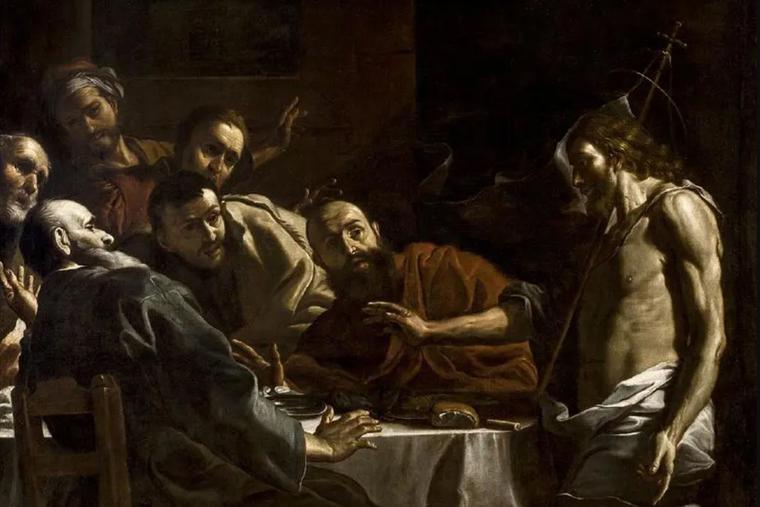‘Peace Be With You’: The Glory and the Gift of Divine Mercy
User’s Guide to Divine Mercy Sunday

Sunday, April 24, is the Second Sunday of Easter, Divine Mercy Sunday. Mass readings: Acts 5:12-16; Psalm 118:2-4, 13-15, 22-24; Revelation 1:9-11a, 12-13, 17-19; John 20:19-31.
Many people today think that mercy is a declaration that God doesn’t really care about sin, or that sin is not a relevant concept. But, on the contrary, mercy exists because sin does exist. Mercy exists because there is a day of judgment. Mercy does not mean there is no hell; mercy exists because hell does. So let’s consider the glory and the gift of mercy on this Sunday of Divine Mercy by looking at the Gospel.
The Prelude to Mercy
If you don’t know the bad news, the good news is no news. And thus, as this Gospel opens, we enter a room where 10 apostles are gathered in fear. These are broken, troubled and disturbed men. All but John had deserted the Lord. One of them had denied knowing Jesus three times. But it is here that we find the prelude to mercy! It is into this darkness that the Lord will break through with astonishing mercy.
We too are often discouraged and struggle with sin. The Lord once spoke to St. Faustina, describing the bad news, only to announce the Good News:
“If I were to reveal to you the whole misery that you are, you would die of terror. ... But because you are such great misery I have revealed to you the whole ocean of my mercy” (St. Faustina’s diary II, 718) “… The graces I grant are not for you alone, but for a great number of other souls as well. ... The greater the sinner the greater the right he has to my mercy” (diary II, 723).
The Peace of Mercy
So, into this Upper Room filled with such sorrow and sin, the text says, “Jesus stood in their midst and said to them, ‘Peace be with you.’” What is peace? It is more than the absence of conflict or division. Peace is the presence in a relationship of all that should be there. It means wholeness in which all essential parts are joined together. The Lord does not merely say, “I will not punish you for what you have done.” He says, "Between you and my Father there is now peace, wholeness, completeness; there is justice.” The Lord does not merely overlook what a mess we are — he makes us whole and pleasing to his Father.
The Priesthood of Mercy
The text says, “He breathed on them and said to them, ‘Receive the Holy Spirit. Whose sins you forgive are forgiven them, whose sins you retain are retained.’” Some say, “I don’t have to tell my sins to any priest. I can go straight to God.” But the Lord Jesus gave the power to forgive sins to the apostles and priest successors. The Lord did not want his mercy to depend on some self-generated notion that mercy was extended. He wanted us to hear those precious words: “I absolve you from your sins. ... Go in peace.” There is nothing more wonderful and certain than those words spoken by the Lord through his priests.
The Prerequisite of Mercy
One of the apostles, Thomas, was missing in the Upper Room. He had drawn back from the only place mercy could be found. It was in the gathered Church the Risen Lord appeared in the midst of them. In drawing back, Thomas blocked his blessings. St. Thomas returned the next week, and the Lord lovingly entered and bestowed mercy.
If you don’t know the bad news, the good news is no news. Thanks be to God that in the bad news of our sin, glorious mercy is extended to all who are repentant. Happy Divine Mercy Sunday!
- Keywords:
- msgr. charles pope
- user’s guide to sunday
- user's guide to sunday
- divine mercy
- divine mercy sunday

















